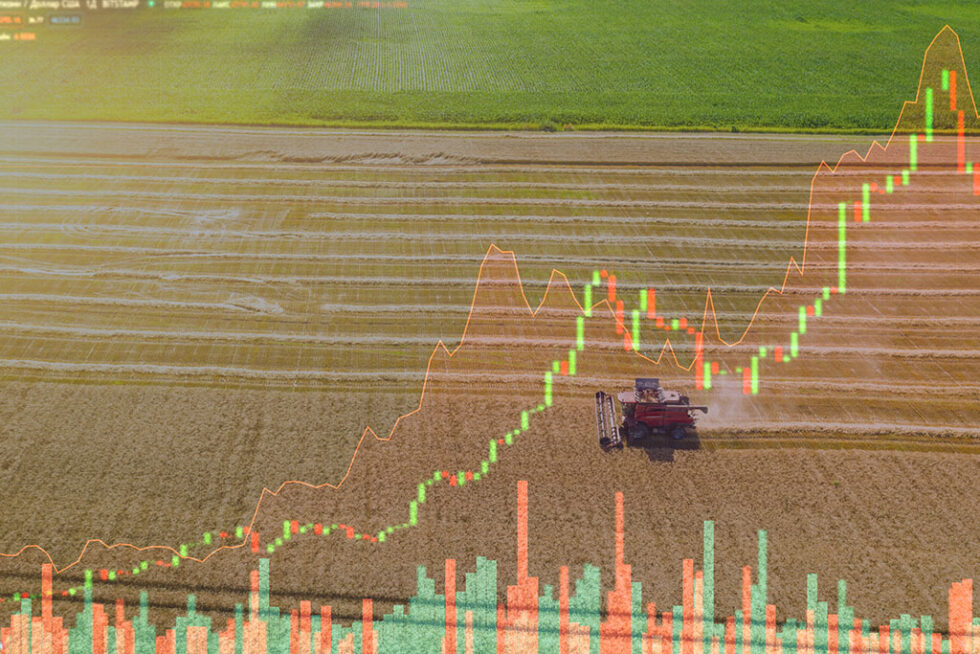
Pension Funds Fuel Hunger Crisis
Uncovering the billions of euros gambled on commodities by reckless funds
Soaring prices of key commodities such as food and energy have triggered a cost of living crisis around the world, including in Europe. The United Nations said the increases may have also pushed an estimated 71 million people in developing nations into poverty.
The UNCTAD, the UN body for trade, stated in their latest report that insufficient attention had been paid to the role of “ speculation and betting frenzies” in the futures markets in pushing up the cost of food and fuel.
An analysis by Lighthouse Reports of the accounts of more than 70 major pension funds in Spain, Italy, Germany, The Netherlands, Germany, the UK, Finland and Denmark showed they may be contributing to the crisis.
While some funds explicitly forbid speculating in commodities, especially in food, 16 are currently investing in them, with the three biggest buyers the Netherlands, UK and Denmark held more than €37 billion between them at the end of 2021.
The findings also raise questions over whether the European Union’s continued drive to deregulate its financial markets will worsen the situation in the future. The rules governing the bloc’s capital markets are currently under review with political discussions expected to be held later this year or early 2023.
According to Jayati Ghosh, professor of Economics at the University of Massachusetts Amherst, the findings of this investigation show that pension funds are among the financial institutions that have aggravated the problem of investor speculation driving food prices.
METHODS
Commodity futures are a type of derivative and mentioned as such in annual reports of most pension funds. For this investigation we selected 75 of the biggest pension funds in Europe and analysed their annual reports.
In some cases the annual reports contained a section on derivatives and sometimes a breakdown of the types of derivatives, and whether they were “over the counter” or “exchange traded”. These two categories correspond to whether the investment was made through a so-called index fund like the Goldman Sachs Commodity Index, or directly through a futures exchange.
With this information we asked the funds to clarify to what extent these derivatives included commodities and how they weigh the risk of this type of exposure.
While many funds have no exposure at all and some have an explicit policy that forbids speculation with (food) commodities, 15 of them are currently investing in commodities.
We discussed these findings with financial market experts such as Ann Pettifor, Jayati Ghosh, Dave Whitcomb and Yaneer Bar-Yam to be able to put the role of those funds into a wider perspective.
STORYLINES
The most in-depth report on the investigation is written by the Dutch outlet Follow the Money. It opens with a quote from the annual report of the Rabobank Pension fund: “2021 was an excellent year for the commodities category.”
Its investments in commodities, such as energy and agricultural products, provided the fund with a return of 43 percent, around six times as much as the average total return of Dutch pension funds.
Rising commodity prices are good news for the fund’s commodities portfolio, but in day-to-day practice fund members will have to pay more for goods and services. High energy and food prices are major causes of the skyrocketing inflation that is leaving countless households and businesses in serious financial trouble.
Servaas Storm, economist and assistant professor at the University of Delft, calls the fund’s actions ‘pretty cynical’.
But it’s not just the Rabobank pension fund. The Dutch pension fund for government and education staff, ABP, is by far the largest investor. ABP, one of the world’s biggest pension funds, had €33.9 billion euros invested in commodity derivatives at the end of 2021 – around a third of which was invested in food commodities. In 2021, rising commodity prices led the value of these investments to increase by 31%.
In the UK, it is a government-backed pension fund that is accused of fuelling the cost of living crisis. Nest, which manages the savings of 10 million British savers, invested more than half a billion pounds in commodities derivatives at the end of 2021 – around a quarter of which were food derivatives.
The Universities Superannuation Scheme (USS) also currently invests in commodity futures to the tune of £1.5 billion. Most of the top UK pension funds surveyed, including those of BP, HSBC and Barlcays, do not invest in commodity derivatives.
To keep up to date with Lighthouse investigations sign up for our monthly newsletter
The Impact
Our investigations don’t end when we publish a story with media partners. Reaching big public audiences is an important step but these investigations have an after life which we both track and take part in. Our work can lead to swift results from court cases to resignations, it can also have a slow-burn impact from public campaigns to political debates or community actions. Where appropriate we want to be part of the conversations that investigative journalism contributes to and to make a difference on the topics we cover. Check back here in the coming months for an update on how this work is having an impact.

